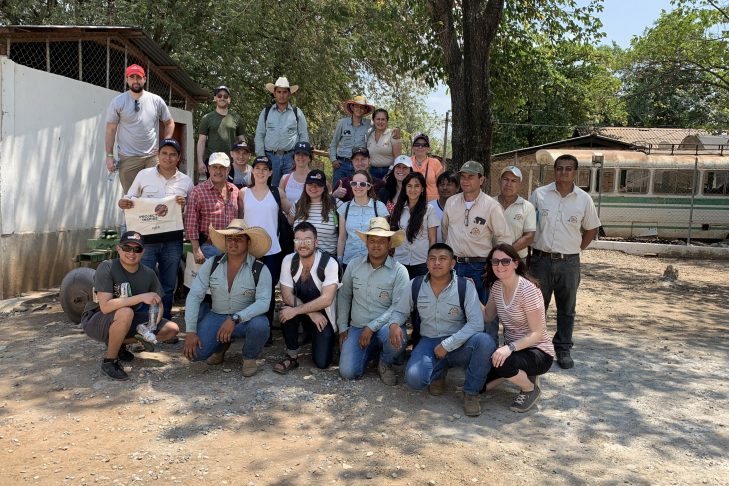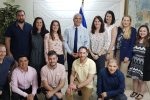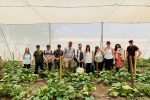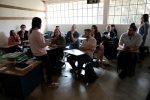As our stay in Guatemala comes to an end, it’s helpful to reflect on the development efforts we have been privileged to observe. One of the biggest takeaways from the trip is that foreign assistance is often most effective when it is done in partnership with local communities, empowering the poor to take control of their lives. In the world of international development, this theory is described as a human rights-based approach because it seeks to promote peoples’ agency in improving their conditions. We saw this first-hand at several projects this week.
At EANOR, an agricultural training program in Zacapa, young people from across Guatemala come together to learn the best strategies for conserving water, enhancing crop yield and avoiding pests. The goal is that the students will not only use their knowledge to improve the agricultural practices on their families’ farms, but will also train other farmers in their communities to help scale impact. Agriculture remains the bedrock of the Guatemalan economy, as the diversity of its climate enables the production of a wide range of products from coffee to bananas to cardamom. Small farmers can overcome poverty by learning techniques that allow them to move beyond subsistence cultivation and begin producing for export.
We also heard how IsraAID, an Israeli-led NGO, prioritizes partnership with local communities when identifying how they can best assist in the wake of a man-made or natural disaster. “One of the most amazing things is the way people who are trained by IsraAID train others in their own ways that incorporate cultural customs and community needs,” said Vered, a trauma therapist who is training other mental health professionals to serve their people. “IsraAID works with communities, not for them. It is very important to respect their culture.” In addition to sharing their knowledge, IsraAID seeks to learn from local communities and adapt their training programs to best serve their partners.
Another strong example of this is MayaWorks, a non-profit group based in Illinois, which facilitates an international market for the indigenous weavers of the Guatemalan highlands. By pursuing a fair price for the weavers’ artwork abroad, MayaWorks seeks to help women, especially victims of domestic violence, reach financial independence. It also provides scholarships to young girls so they can pursue careers outside the home. This partnership promotes Mayan culture and allows the women to take an active role in overcoming poverty.
While speaking with the leaders of MayaWorks, we learned about their aspirations to increase sales in the U.S. market. We are eager to learn more about what the organization’s needs are and how our community can best support their work. For the time being, we look forward to wearing the woven MayaWorks kippot at Shabbat dinners and sharing their stories at the Passover table.
Follow along:
Blog: JewishBoston.com
Facebook: Project Inspire
Twitter: @CJPIsrael & @CJPBoston








